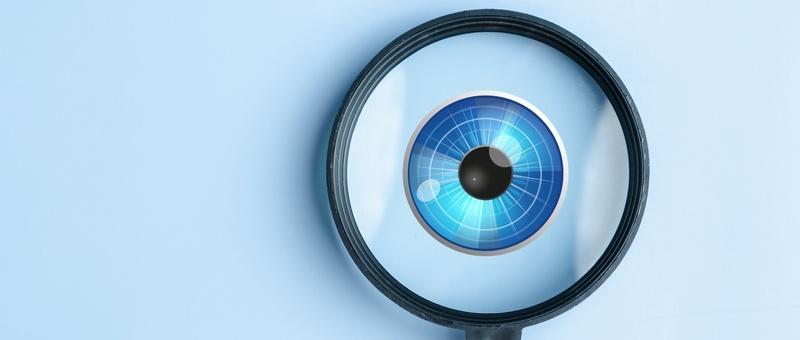
Vídeos sobre el cerebro y los nervios
Revisado por el Dr. Colin Tidy, MRCGPAutor: Victoria RawPublicado originalmente el 26 de junio de 2025
Satisface las necesidades del paciente directrices editoriales
- DescargarDescargar
- Compartir
- Idioma
- Debate
Explore our video library covering key brain and nerves health issues. From headaches to strokes and TIAs, our videos offer clear guidance to help you understand your body and take charge of your health.
En este artículo:
Seguir leyendo
Ictus y AIT
A stroke happens when part of your brain doesn't get enough blood, either by a blockage or bleeding. A TIA (transient ischemic attack) is a temporary disruption of blood flow to the brain. It is often called a mini-stroke.
Playlist: Stroke and TIA
6 vídeos
¿Qué es una apoplejía?
Dra. Sarah Jarvis MBE, FRCGP
¿Qué es una apoplejía?
Dra. Sarah Jarvis MBE, FRCGP

Spotting the signs of a stroke
Dra. Sarah Jarvis MBE, FRCGP

How can you prevent stroke ?
Dr. Krishna Vakharia, MRCGP

¿Qué es un mini-ictus?
Victoria Raw

¿Cuáles son los síntomas de un mini-ictus?
Victoria Raw

Cómo prevenir un mini-ictus
Victoria Raw
Migraña
A migraine is a headache that causes severe throbbing pain on one side of the head. Lifestyle changes such as staying hydrated, managing stress, and keeping a regular sleep schedule can help prevent them.
Lifestyle changes to prevent migraine
Seguir leyendo
Ciática
Sciatica is when you get pain, tingling, or numbness that starts in your lower back and travels down your leg. It is caused by irritation or pressure on the sciatic nerve.
¿Qué es la ciática?
Mareos
Dizziness is a lightheaded or woozy feeling that can make you feel off balance or like the room is spinning. It can happen due to dehydration, low blood sugar, inner ear problems, or even just standing up too quickly.
¿Qué es el mareo?
Seguir leyendo
Síndrome del túnel carpiano
Carpal tunnel syndrome is a condition where a nerve in your wrist (the median nerve) gets squeezed or compressed. It causes tingling, numbness, or pain in your hand and fingers.
¿Qué es el síndrome del túnel carpiano?
Lesión en la cabeza
Head injuries can range from a mild bump or concussion to something more serious like a skull fracture. You should see a doctor if you have symptoms like confusion, vomiting, a bad headache, or faint.
¿Cuáles son los distintos tipos de traumatismo craneoencefálico?
¿Cuándo debo ir al médico con un traumatismo craneal?
Dolor de cabeza
A headache could be a sign of something serious if it comes on suddenly and feels very intense, is different from your usual headaches, or is joined by other symptoms like confusion, vision changes, weakness, fever, or a stiff neck.
¿Cuándo debo consultar a un médico por un dolor de cabeza?
Patient picks for Other conditions

Videoteca de salud y bienestar
Vídeos sobre salud digestiva
Los problemas digestivos pueden ser incómodos, confusos y, a veces, un poco embarazosos. Nuestro centro de vídeos sobre salud digestiva incluye vídeos dirigidos por expertos que le ayudarán a comprender problemas comunes de salud digestiva como el estreñimiento, la gastroenteritis y el reflujo ácido. Tanto si padece hinchazón, dolor de estómago o acidez frecuente, estos vídeos le ofrecen consejos claros y fiables para ayudarle a controlar mejor su salud intestinal.
por Victoria Raw

Videoteca de salud y bienestar
Vídeos sobre enfermedades oculares
Welcome to Patient's eye-health video hub where trusted doctors share expert insights on maintaining healthy vision and recognising early signs of common eye conditions. Whether you're managing an existing issue or simply looking to protect your sight, these videos offer clear, reliable guidance to help you see your best every day.
por Lawrence Higgins
Seguir leyendo
Historia del artículo
La información de esta página ha sido revisada por médicos cualificados.
Próxima revisión prevista: 26 de junio 2028
26 Jun 2025 | Publicado originalmente
Autores:
Victoria RawRevisado por expertos
Dr. Colin Tidy, MRCGP

Pregunte, comparta, conecte.
Explore debates, formule preguntas y comparta experiencias sobre cientos de temas de salud.

¿Se encuentra mal?
Evalúe sus síntomas en línea de forma gratuita
Suscríbase al boletín informativo para pacientes.
Tu dosis semanal de consejos de salud claros y fiables, redactados para ayudarte a sentirte informado, seguro y en control.
Al suscribirte, aceptas nuestra Política de privacidad. Puedes darte de baja en cualquier momento. Nunca vendemos tus datos.